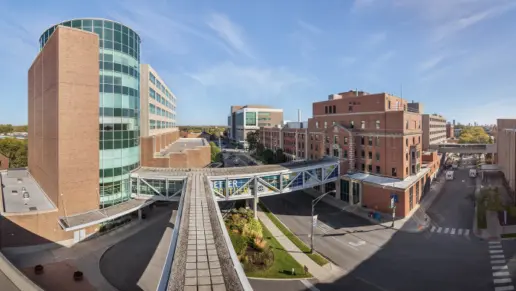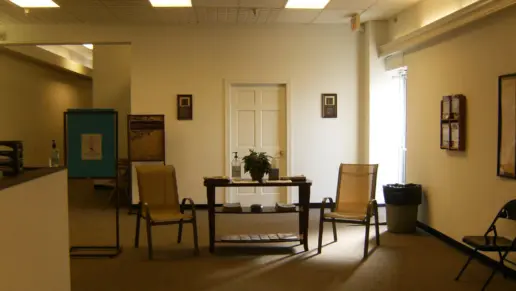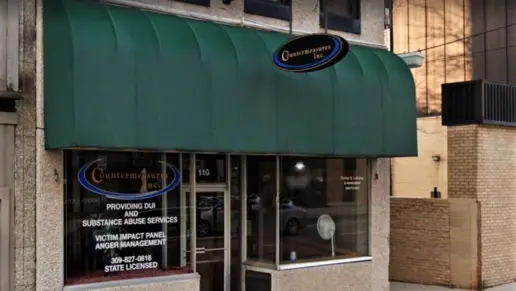The staff and doctors at Sertoma really care about you. They've been comprehensive and compassionate with me since the first day. I'm blessed for the help they have provided me; I'm doing so much better now.
About Matteson,IL Sertoma Star Centre Inc.
Sertoma Centre focuses on mental health counseling and substance misuse for adults and teens. Services include outpatient counseling, residential support services, and crisis stabilization. They offer START, a psychosocial rehabilitation (PSR) program, and a community support team (CST) for individuals with intellectual and developmental disabilities who also have a diagnosed mental illness. You'll find 'em located out in on Chicago’s South Side in Matteson, Illinois.
The site is trauma-informed and ADA accessible. Individuals who need a court ordered alcohol and drug evaluation can have one completed here by a Certified Alcohol and Drug Counselor (CADC).
Depending on the services you need, they accept payment through Medicaid, commercial insurance, Employee Assistance Programs, and self-pay.
Outpatient counseling helps people with substance use, trauma, grief, and other mental health issues. Therapists use proven methods like dialectical (DBT) and cognitive behavioral therapy (CBT), along with trauma-informed care.
One thing that stands out about outpatient counseling here is flexibility. You can join group sessions one or two days a week or opt for weekly individual sessions. They cover topics like trauma recovery, emotional regulation, and mindful meditation. An art therapist oversees the expressive arts therapy groups. You pick what fits your recovery goals best!
I also really like how integrated they are with the local community. They address not only substance abuse, but also social factors that can impact your mental and behavioral health. Sertoma Centre provides in-school counseling across the South Suburbs so that students have a safe, supportive space to get help for things like anxiety, substance use, and trauma. The program includes confidential group therapy sessions during the school day.
START helps people with intellectual and developmental disabilities and mental illness build skills to manage their condition. The program includes groups for practicing coping skills and connecting with others. CST offers weekly home visits to support daily needs, healthcare, and medications. Plus, they help with housing and jobs. They’re available 24/7 to make sure individuals have the support they need to live independently.
Latest Reviews
Rehab Score
Accepted Insurance
Other Forms of Payment
Private insurance refers to any kind of healthcare coverage that isn't from the state or federal government. This includes individual and family plans offered by an employer or purchased from the Insurance Marketplace. Every plan will have different requirements and out of pocket costs so be sure to get the full details before you start treatment.
Self-pay involves paying for treatment out of your own pocket. You can use savings or credit, get a personal loan, or receive help from family and friends to fund your treatment. If you don't have insurance or your insurance plan doesn't cover a specific program, self-pay can help ensure you still get the care you need.
Medicaid is a state based program that helps lower-income individuals and families pay for healthcare. Medicaid covers addiction treatment so those enrolled can use their coverage to pay for rehab. When a program accepts Medicaid the client often pays very little or nothing out of their own pocket.
Medicare is a federal program that provides health insurance for those 65 and older. It also serves people under 65 with chronic and disabling health challenges. To use Medicare for addiction treatment you need to find a program that accepts Medicare and is in network with your plan. Out of pocket costs and preauthorization requirements vary, so always check with your provider.
Addiction Treatments
Levels of Care
Treatments
Mental health rehabs focus on helping individuals recover from mental illnesses like bipolar disorder, clinical depression, anxiety disorders, schizophrenia, and more. Mental health professionals at these facilities are trained to understand and treat mental health issues, both in individual and group settings.
Programs



Clinical Services
Cognitive Behavioral Therapy (CBT) is a therapy modality that focuses on the relationship between one's thoughts, feelings, and behaviors. It is used to establish and allow for healthy responses to thoughts and feelings (instead of unhealthy responses, like using drugs or alcohol). CBT has been proven effective for recovering addicts of all kinds, and is used to strengthen a patient's own self-awareness and ability to self-regulate. CBT allows individuals to monitor their own emotional state, become more adept at communicating with others, and manage stress without needing to engage in substance abuse.
Dialectical Behavior Therapy (DBT) is a modified form of Cognitive Behavioral Therapy (CBT), a treatment designed to help people understand and ultimately affect the relationship between their thoughts, feelings, and behaviors. DBT is often used for individuals who struggle with self-harm behaviors, such as self-mutilation (cutting) and suicidal thoughts, urges, or attempts. It has been proven clinically effective for those who struggle with out-of-control emotions and mental health illnesses like Borderline Personality Disorder.
Group therapy is any therapeutic work that happens in a group (not one-on-one). There are a number of different group therapy modalities, including support groups, experiential therapy, psycho-education, and more. Group therapy involves treatment as well as processing interaction between group members.
In individual therapy, a patient meets one-on-one with a trained psychologist or counselor. Therapy is a pivotal part of effective substance abuse treatment, as it often covers root causes of addiction, including challenges faced by the patient in their social, family, and work/school life.
Whether a marriage or other committed relationship, an intimate partnership is one of the most important aspects of a person's life. Drug and alcohol addiction affects both members of a couple in deep and meaningful ways, as does rehab and recovery. Couples therapy and other couples-focused treatment programs are significant parts of exploring triggers of addiction, as well as learning how to build healthy patterns to support ongoing sobriety.
Research clearly demonstrates that recovery is far more successful and sustainable when loved ones like family members participate in rehab and substance abuse treatment. Genetic factors may be at play when it comes to drug and alcohol addiction, as well as mental health issues. Family dynamics often play a critical role in addiction triggers, and if properly educated, family members can be a strong source of support when it comes to rehabilitation.
Staff & Accreditations
Staff

Interim CEO

Interim Executive Director

CFO

CHRO

Chief Development Officer

Chief Business Support Officer

Chief Risk Officer

Senior VP of Community Mental Health

Accreditations

The Commission on Accreditation of Rehabilitation Facilities (CARF) is a non-profit organization that specifically accredits rehab organizations. Founded in 1966, CARF's, mission is to help service providers like rehab facilities maintain high standards of care.
CARF Accreditation: Yes
Contact Information
4331 Lincoln Hwy
Matteson, IL 60443







